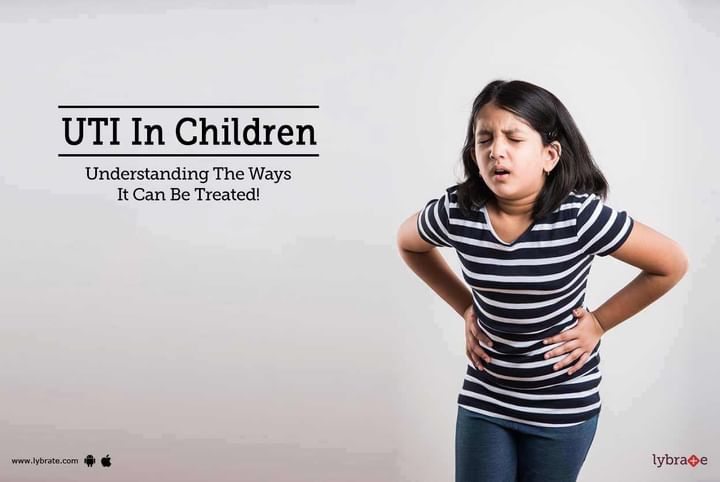UTI In Children - Understanding The Ways It Can Be Treated!
UTI stands for urinary tract infections. In children a urinary tract infection (UTI) is a very common condition caused by bacteria. Bacteria that enter the urethra are flushed out through urination. But, when bacteria aren’t excluded out of the urethra, they may grow in the urinary tract and cause infections. The Survey state that up to 8% of girls and 2% of boys will get a UTI at an early age. Sometimes the symptoms of UTI are hard to detect in kids so it is better to get your child treated, as it turn into serious kidney diseases. With a right treatment your child will feel better within few days.
Symptoms of a UTI include:
- Burning and pain during micturation.
- Urgent need to go, but having a few drops of urine.
- Fever and vomiting commonly occur during UTI.
- Foul smell and cloudy urine.
Causes
- Bladder outlet obstruction like posterior urethral valve in males
- Vesico ureteric reflux (VUR)
- Uretero pelvic junction obstruction (UPJ Obstruction)
- Constipation: Being constipated makes difficult to empty your bladder, which means trapped bacteria which increases risk of UTI. So in order to reduce the UTI risk, avoid constipation
- Dehydration: Drinking water not only quenches your thirst, but it also avoids the risk of getting UTI. We should drink enough water so that we can flush out bacteria that can cause UTI. Drinking water also avoids the constipation problem.
- Holding urine: Holding urine for 6 hours make UTI more common as bacteria in the bladder has lots of time to grow and cause infection. So ask your child to pass urine after few hours.
Prevention
- Avoid tight fitting clothes, especially for girl children.
- Drink more and more liquids and eat fibre rich food.
- Change the diaper of young child frequently.
- Ask your child to go for urine immediately rather than holding.
- Don’t give bubble bath to the child as it is a major source of bacteria.
Investigations:
- USG (KUB)
- Urine routine examination and culture sensitivity
- MCU (Micturating Cysto Urethrogram)
- Urodynamic study
- DTPA Scan
- DMSA Scan
Treatments
The most common antibiotics used for treatment are:Amoxicillin and clavulanic acid, Sulfamethoxazole-trimethoprim, Ofloxacin, Cefixime etc Sometimes hospitalization is necessary in younger than 6 months old, if:
- The Child has a high fever and not improving.
- The child is vomiting and having dehydration.
In case you have a concern or query you can always consult an expert & get answers to your questions!



+1.svg)
